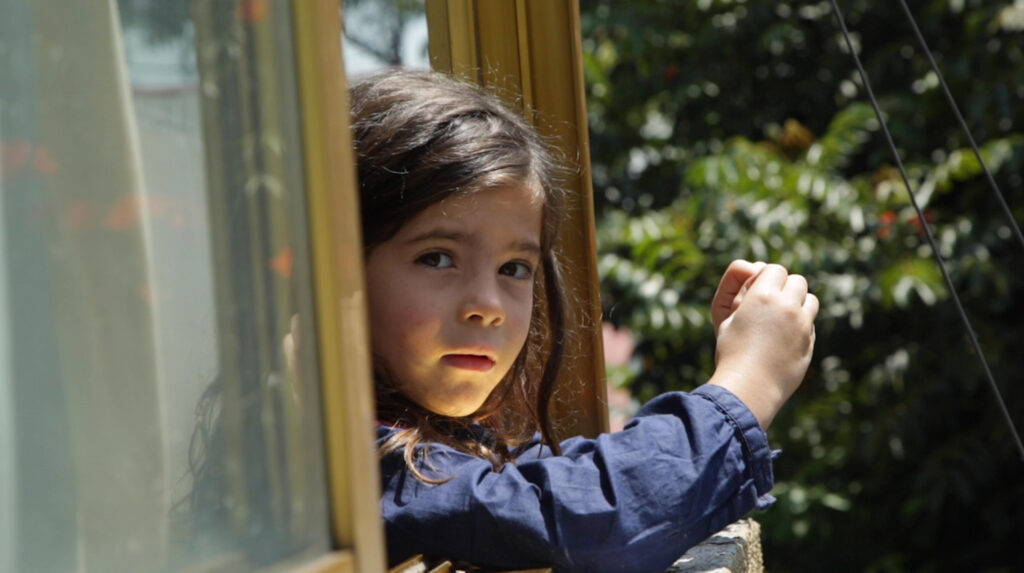Throughout the more hopeful months of 2021, the programmers and staff of the Rotterdam International Film Festival (IFFR) prepared for the jubilant return to an all in-person 51st festival, January 26 – February 6. Then, late in the year, the Omicron variant began its rampage through Western Europe, and the Netherlands became the first nation to resume a strict lockdown on December 19, making the prospect of an in-person festival nil.
“It’s been quite a rollercoaster adapting to the ever-changing measures here,” admitted Camille Motte of the IFFR press office, just days before the festival launched virtually for the second year in a row, a belated but seamlessly managed return to the 2021 online model. Events and meetings with a multi-national team were quickly retooled as Zoom encounters stretching across international time zones, which, according to Texas-based festival consultant Ralph McKay, could involve the sight of bed-heads and bathrobes.
Adaptations aside, this festival has made no compromise in its dedication to cinema that thrives in the most risk-taking outer reaches of storytelling. Personal vision in its purest form is conspicuously a hallmark of IFFR selections, whether for the Big Screen Competition, or for the festival’s influential Tiger Competition, which annually puts a spotlight on an international array of new and emerging filmmakers.
Unlike the majority of film festivals, IFFR does not put a high premium on exclusivity and world premieres, although Rotterdam boasts of its share, but rather aims for context. According to McKay, “IFFR looks closely at what’s circulating, and by not excluding the most interesting for lack of a premiere, the festival brings a mix of all scales of current cinema into dialogue.”

The dialogue the films create by their end-to-end proximity can be a provocative one. In the case of IFFR 2022, the composite picture of a Covid-infected world is a fragmented portrait made up of singular visions in which themes include isolation, terrorism, gender fluidity, sexual violence, and absurdity taken to giddying heights, as in Israeli director Roee Rosen’s “Kafka for Kids,” in which an intricate parody of a TV show for children abruptly drops its ruse for a bluntly grounded commentary on Israeli military violence against Palestinian children.
Two observational documentaries born of intense isolation created opposite sensations of time and duration to subtly gripping effect. “Footnote” by Chinese-born, U.S.-based Zhenfang Yang was filmed over a period of weeks from the window of an apartment building on Chicago’s North Side. As the seasons and times of day vary, scenes of street life are overlaid with a soundtrack consisting entirely of police calls. A dispassionate voice creates an in-progress narrative of the hidden underside of the city: domestic violence; a homeless man breaking into a car; an assault; a lost dog; a person shouting racial slurs in a restaurant. Events, both trivial and the momentous, flow together in an open-ended timeline with neither beginning nor end.
Mexican director Eugenio Polgovsky’s documentary “Malintzin 17” was completed following his untimely death by his sister Maya Polgovsky, from material originally shot in 2016. This touching chronicle covers the brief period of time in which a pigeon is observed sitting on her nest atop a utility pole while the filmmaker and his little daughter Mile hang out an apartment window to check the bird’s daily progress. Childish conversation, curious and wildly imaginative marks the tender course of the parent-child relationship until the day the nest is empty. The landscape, from the street-level movements of pedestrians, delivery trucks, and dog-walkers to the lightning-lit rooftops in a thunderstorm, is shot with a gently roving camera that evokes a lingering sense of nostalgia for the passing of time.

IFFR’s sidebar focus on the work of American avant-garde filmmaker Amanda Kramer launched with the world premiere of her psychodrama/musical “Please Baby Please” as the festival’s opening night feature presentation. Kramer’s second 2022-release feature, the candy-colored “Give Me Pity!,” featuring performer Sissy St. Claire, also had its world premiere as part of the eight-film retrospective. Artifice and intensely stylized performance characterize Kramer’s kinetic style.
“Please Baby Please” opens with neon-lit mayhem in a fog-shrouded alley, where members of the leather-jacketed motorcycle gang, the Young Gents, execute a brutal attack on a man and a woman. Observed from a distance by another couple, Arthur (Harry Melling) and his wife Suze (Andrea Riseborough), the incident proves to be an electrifying catalyst in their relationship. These newlyweds are about to tumble down a rabbit hole where gender is up for grabs, and sexuality exists in an amorphous space between the wicked macho allure of the Young Gents and the traditional male-female roles of marriage.
Kramer constructs a cardboard dream world, heavy on saturated color, stylized movement, faux violence, and characters with an aggressively stagey presentation. This is no “West Side Story,” despite the dance moves and the choreographed gang wars, nor is it an homage to the Fifties, despite the film’s gleeful evocation of the style and sleazy glam of the era.
After the film’s energetically raw opening, eye-popping in its choreography, Arthur and Suze and their neighbors (including a vampy Demi Moore in zebra-print coat and coral jumpsuit), hole up in a Manhattan apartment complex decorated in lurid hues to perform dance numbers rife with sexual innuendo and exchange arch, rapid-fire musings proclaiming the film’s undercurrent of gender-centered theoretical dialogue in darkly glittering disguise. In an atmosphere poised between threat and violence, Arthur and Suze explore forbidden desires and potential transformations.

The centerpiece of each year’s IFFR is the Tiger Competition, created as a showcase for “up and coming talent.” Fourteen features competed, and this year’s winner of the first prize of 40,000 Euros is the magic realist fable “Eami” by Paz Encina of Paraguay. A tribal creation myth couched in a haunting meditation on environmental issues, exploitation and the destruction of the rain forest, the film is narrated with the voice of a child.
Filmmaker Encina roots her tale in the mythology of the Ayoreo-Totobiegosode people, a deeply isolated tribal group that has systematically been exploited and robbed of the wilderness region that has been their traditional habitat for millennia. Natural imagery, beginning with the film’s prolonged opening shot of speckled bird eggs in a nest is accompanied by a symphony of random forest sounds: animals, birds, wind, and the crackling of fire.
The narrator, named Eami, which is said to mean “world” in the Ayoreo language, speaks variously as a five-year-old indigenous child, and as a bird-goddess. Her story mixes mythic elements with the real-life tale of invaders in the lands of her people, and of the environmental wreckage left behind. Encina’s magic lies in the low-key folkloric quality of her approach. Along with the gentle childlike narration, the closely observed natural imagery that dominates the film weaves a spell of its own in counterpoint to the pointedly underplayed tragedy of the conquest that ensues.

“Excess Will Save Us,” by Morgane Dziurla-Petit, winner of one of the two 10,000-Euro runner-up awards in the Tiger Competition, brought a welcome infusion of levity to a festival largely distinguished by somber notes and high-concept explorations. Riffing on her own earlier prize-winning short of the same title, the filmmaker embeds the short as a narrative springboard within this feature exploring strange happenings in the Northern French village of Villereau.
Absurdity reigns in this small town where the gunfire from a pigeon hunt is mistaken for the sounds of a terrorist assault, and it’s not long before someone is sure that he heard shouts of “Allah akbar.” This is a place where an hilariously filthy ditty is sung with straight-faced gusto by all at a family party, and where a wedding reception erupts in a wacko dance number. This French hillbilly milieu has a kinship with the rough rural culture that director Bruno Dumont has explored in a different context in films including “The Life of Jesus” and “Li’l Quinquin.”
Freely mixing autobiography, personal memory, quasi-documentary, and fantasy in a multi-generational shaggy dog story, Dziurla-Petit features her family members in key roles. Imagined terrorism, Covid closures, family troubles, and the unceremonious ousting of a cousin’s Arab boyfriend simmer, while Uncle Bernard mounts a bizarre campaign for village mayor, selling his tractor to finance the effort.
Ultimately, the delusional starring role is reserved for the filmmaker’s dad Patrick, whose dreams are fired by the invitation to the Clermont-Ferrand Film Festival, to appear with his daughter’s short documentary. The adventure is provocative, funny, and goofy, a family in-joke turned inside-out for the world’s consumption, and a fine testament to the career-making, transformative power of a film festival.












